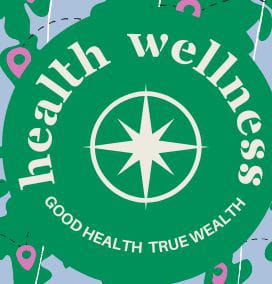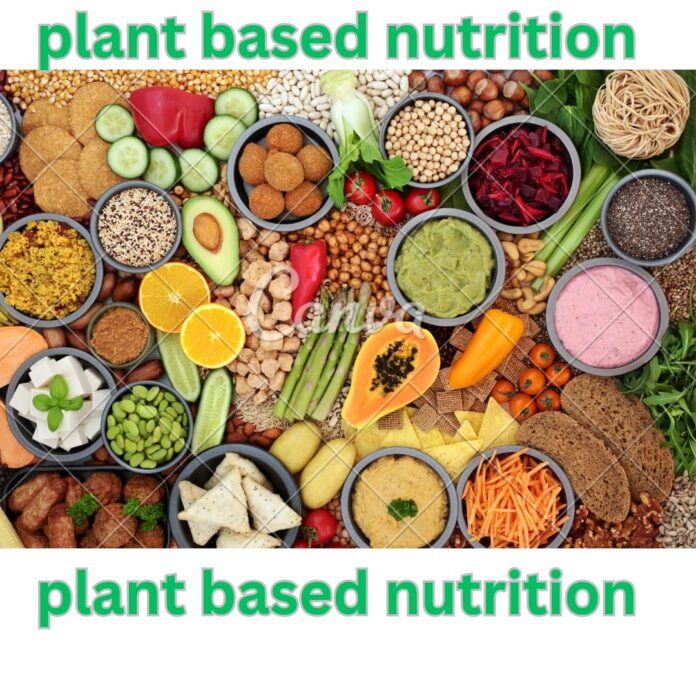Both environmental advantages and ethical considerations combined with several health benefits made plant-based nutrition popular in recent times. But what is plant-based nutrition? A person following this diet relies mainly on whole foods that come from plants and works toward reducing or eliminating animal food consumption. Eating plants constitutes a diet that consists of vegetables, fruits, legumes and nuts, seeds and whole grains which offer vital nutrients for wholesome health.
Understanding Plant-Based Nutrition A plant-based nutrition system focuses on obtaining its food from plants.Focusing on plant foods constitutes the main diet component although it does not have to follow strict vegan or vegetarian principles.People either eat limited quantities of animal products or adhere to complete vegan dietary practices. A healthy plant-based food plan delivers all necessary macro and micronutrients including carbohydrates and proteins together with health-promoting fats and vitamins and minerals and antioxidants.Proper nutrition from plant-food sources supports improved digestive health together with immunity strength and decreases the possibility of persistent illnesses.
Improves Heart Health A plant-based diet contains an abundance of fiber, healthy fats, and antioxidants, aiding in the reduction of bad cholesterol levels and blood pressure. Studies have shown that a plant-based diet reduces the risk of heart diseases and strokes. 2 Supports Weight Management Eating fiber-rich plant foods increases satiation, which can lead to decreased caloric intake, thus encouraging weight maintenance. Compared to processed or animal-based foods, whole plant foods have naturally lower calories and fat. 3 Reduces the Risk of Chronic Diseases What other activity is a plant-based nutrition if not one of disease prevention? Studies have shown that plant-based nutrition decreases the risk of type 2 diabetes, certain cancers, and hypertension. Physical fiber within the foods keeps blood sugar levels stable, while antioxidants protect tissues against damage from free radicals which can contribute to disease. 4 Enhances Digestive Health When consumed as part of fruit, vegetables, and whole grains, dietary fiber encourages regularity to avoid constipation These plant foods also include probiotics, such as fermented vegetables, that contribute to gut health. 5 Improves Mental Well-being Omega-three fatty acid-rich nutrient-dense plant foods promote brain health and cognitive function. Some studies suggest the presence of interrelations between plant-based diets and offenses against depression as well as anxiety.
While plant-based diets offer many advantages, it is very important to be aware of nutrient intake. This includes, but is not limited to, the following nutrients: Protein: From legumes, tofu, tempeh, nuts, seeds, and whole grains; Iron: Contained in lentils, spinach, quinoa, and fortified cereals, especially absorbed with vitamin C-rich foods; Calcium: Sources include fortified plant milk, leafy greens, almonds, and sesame seeds; . Vitamin B12: Often found in fortified food and supplements, as this vitamin is mostly housed in animal products; . Omega-3 Fatty Acids: Provided from chia seeds, flaxseeds, walnuts, and hemp seeds.
Switching to a plant-based diet doesn’t have to be an overwhelming thing. Here are some tips to help you ease yourself into it: Start slow: Gradually increase the amount of plant foods in your diet while reducing processed foods and animal products. 1 Experiment with plant-based recipes: Make new dishes with different plant foods to keep meals interesting and nutritious. 2 Balanced nutrition: Make sure you include all needed nutrients in your meal planning so that you won’t fall short on any nutrients. 3 Read food labels: Go for whole foods; . avoid processed plant-based alternatives loaded with additives. . Drink lots of water and herbal teas to achieve good hydration that assures digestive and overall health. . Common myths regarding plant-based nutrition . Despite the popularity of plant-based eating, some myths surround it. 4 Here are a few misconceptions: “Plant-based diets do not provide protein”: This expectation is a wrong assumption. Protein can be found in ample plant-based foods such as beans, lentils, tofu, quinoa, and nuts. 5 “One needs dairy for strong bones”: Dairy products contain calcium, but one can sufficiently obtain it for bone health from various plant-based sources like fortified plant sports drinks, leafy greens, and almonds. 6 “Plant-based diets are expensive”: Many plant foods – grains, legumes, and seasonal vegetables – are budget-friendly, costing less than many animal products. 7 “It’s a hard thing to consume the needed amounts of nutrients”: A well-planned plant-based diet allows one to achieve all the needed nutrients through various food sources, and if required, supplements such as B12 could be utilized.
1 Lower Carbon Footprint
Less carbon footprints of plant-based dieters when compared to the animal agriculture sector may help in the fight against other climate change issues that are alarmingly escalating.
2 Conserve Natural Resources
Farming plant food consumes less water and land in comparison to livestock farming, conserving the massive resources of this planet.
3 Act of Animal Welfare
Choosing plant-based options goes a long way in curtailing the suffering of animals in the food industry and therefore corresponds with living an ethical and compassionate lifestyle.
Conclusion In other words, the most salient features of plant-based nutrition are those in which the emphasis for better health is given to health benefits, environmental sustainability, and ethical matters. No matter whether you want to go full vegan or just contribute more to plant foods, the benefits are endless. Health would improve, mitosis could be reduced, and the planet itself could step toward a sustainable future. Begin now to find out how plant-based nutrition can change your life!





